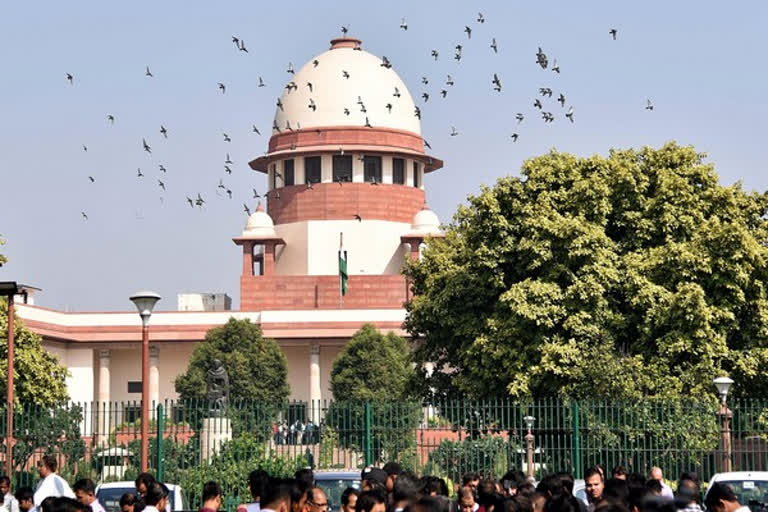New Delhi: As on July 1, there are a total of 70,062 cases pending in the Supreme court, including 492 constitution bench matters. Over the past six months, the pendency of cases has varied marginally and the number has remained above 70,000. Constitution bench matters have increased from 422 in January to 492 in July. Constitution bench matters are those matters that deal with the question of law.
Talking about the huge pendency, Supreme Court advocate Aditya Parolia told ETV Bharat that cases from all over the country and every court come to the Supreme Court. "Everyone wants to come to the Supreme court," said Advocate Parolia. He said that every day, a huge number of fresh matters are filed and every case takes its own time.
"There is a certain procedure that has to be followed, the law desires the judge and the lawyer to give the case its due time and hearing else justice won't be served to the parties," he said adding that the court doesn't have the requisite number of judges. It was not "humanly possible for a judge to hear many cases or beyond a particular time," Parolia said, adding that "final matters take one to two hours on average, and on the days when it is listed, judges can hardly take up 7 to 8 matters".
Also read: If children go to school at 7 am, SC can begin hearing cases at 9, says Justice Lalit
Chief Justice of India NV Ramana has often talked about Alternative Dispute Resolution(ADR) as a way to lessen the burden of the court. Parolia said that it doesn't turn out to be very effective in India because people are not willing to negotiate and want to approach the court. "Nobody wants to be financially wise to do it," he said.
The advocate noted that in other countries, people try to stay away from the courts, but the situation was the contrary in India. "Here they wait for the aggrieved party. They think 'I have gone through the entire battle, why should I negotiate? I will wait for the court's judgment," he noted. A decent scale of pay to the mediators in case of ADR is also an issue.
It's the parties who have to pay the mediators but the mediators are not paid as per their expertise and hence they are reluctant to deal with the matter, said Parolia. Explaining the matter further, he said that the government doesn't appoint judges. The Supreme Court can recommend, but the appointment has to be made by the government. "Nowadays the government is not appointing judges to tribunals or courts. It is creating a huge hurdle," Parolia said. All the cases from the other courts and tribunals can be challenged in SC.
Also read: Petition in SC seeks directives to allow prayers to 'Shivling' found in Gyanvapi complex
Suggesting measures to deal with the pendency, he recommended that four courts of appeals, as recommended by the law commission and the top court, is the only way out. As per the recommendation, there need to be four courts of appeal which will be territorially divided to hear the appeals from different courts with different territorial jurisdictions.
"Increasing the number of judges is certainly one thing that has to be done. Secondly, the court of appeal approach has to be explored, only then something will happen. We have already created tribunals like NCLAT for specific grievances, but that is not helping because the appointment of judges is not being done. Unless they appoint a number of judges, nobody can help it," said Parolia.
Other than that he suggested that cases like matrimonial disputes, bail matters, land disputes, cases under 138, etc can be dealt with by senior mediators, and the Supreme Court should only be hearing constitutional matters or matters dealing with serious questions of laws.



